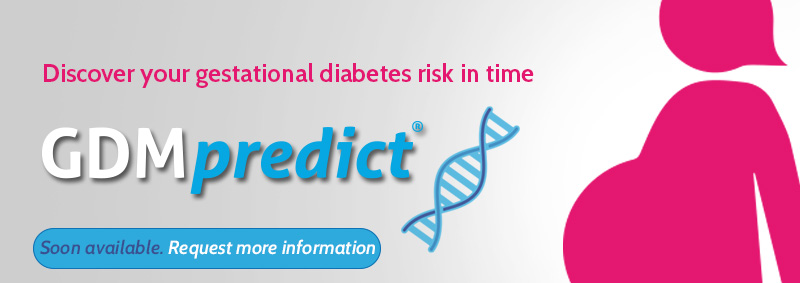What is gestational diabetes?
One in ten pregnant women suffer from gestational diabetes.
To have suffered from this type of diabetes increases the probabilities of suffering from type 2 diabetes by 60% after pregnancy.
Gestational diabetes is a type of diabetes which develops during pregnancy. Normally this type of diabetes does not have any symptoms, so all pregnant women get the O’Sullivan Test (“the sugar test”) between weeks 24 and 28 of pregnancy to identify their risk of having gestational diabetes.
Should the test result positive, a second test is carried out, the oral glucose tolerance test (OGTT), or glucose curve. A diagnostic which does not mean they had diabetes before pregnancy or that they are going to have diabetes after giving birth.
If two or more values appear equal to or greater than the limit values for glucose levels in blood the woman is considered to suffer from gestational diabetes, which must be controlled.. Depending on the results of the test the doctor will prescribe a treatment with diet and oral medication or with diet and insulin.

Gestational diabetes starts when the body of the pregnant woman cannot produce or use all the insulin necessary for the pregnancy.
This defficiency of insulin results in an inability of the cells to turn glucose into energy and the accumulation of glucose in the blood causing hyperglycaemia, the rise of blood sugar levels.
Untreated or uncontrolled gestational diabetes can harm the baby.
The pancreas of a pregnant woman with gestational diabetes over-extends itself to produce insulin, but does not lower the level of glucose in the blood causing the baby to have a high level of glucose. The baby’s pancreas produces more insulin to eliminate the glucose in the blood and the baby receives more energy than necessary for its development. This additional energy is stored as fat.
Thus the baby is born with a higher weight than normal. These babies can be born with a weight of more than four kilos and also have lung developmental abnormalities, respiratory problems or hypoglycaemia (low levels of sugar). Additionally, they present a greater risk of being obese during their childhood and suffering from type 2 diabetes as adults.
Gestational diabetes affects the mother at the end of pregnancy, when the baby’s body is already formed and while the baby is growing. For this reason this type of diabetes does not affect the baby in the same way as in those cases where the mother suffers from the diabetes before becoming pregnant.

If you are thinking about becoming pregnant, it is important for your health and that of your baby to know your genetic risk of suffering from gestational diabetes and your glucose levels (sugar) in your blood and keep them under control.
Who can suffer from gestational diabetes?
Pregnant women who have never suffered from diabetes type 2 but who have a high genetic risk or a high level of glucose in the blood during pregnancy have a chance of suffering from gestational diabetes.
Does suffering from gestational diabetes increase the risk of having type 2 diabetes?
Women who have suffered from gestational diabetes usually stabilise their glucose levels after giving birth, but they have a high risk of developing diabetes in the future.
A test for genetic predisposition to developing gestational diabetes in the mother, before or during pregnancy, and a test for genetic predisposition to type 2 diabetes in the mother and in the baby, after the pregnancy can help to prevent and control gestational diabetes and risks of later complications.
Gestational diabetes is in itself a risk factor for type 2 diabetes.




